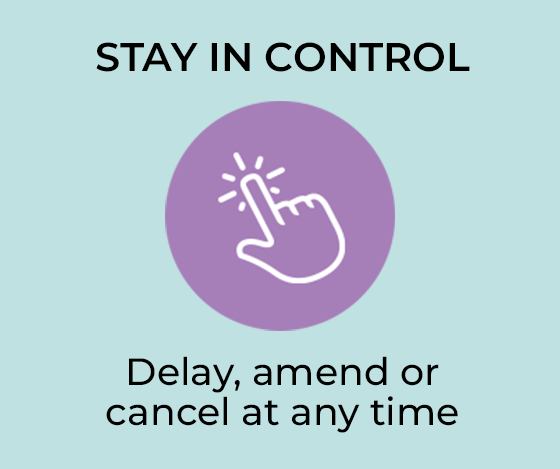Magnesium is gaining popularity for its ability to support relaxation and restful sleep. Here, we explore how it works and which form of magnesium is best for increasing sleep quality.
🕒 7 min read
Sleep is essential for our overall health, yet many don’t manage to achieve a full night of quality rest. Persistent sleep problems can take a toll on your overall well-being, contributing to low mood, a weakened immune system, and even increasing the risk of serious health conditions like heart disease.
While countless factors can disrupt our sleep, the role of essential minerals is gaining well-deserved attention. Among them, magnesium has emerged as a popular natural remedy for its ability to regulate the neurotransmitters responsible for calming the nervous system, effectively acting as a brake when your mind is racing.
Does magnesium help you sleep?
Research suggests that a higher magnesium intake may really make a difference for your sleep. In a long-term study of nearly 4,000 young adults, those with the highest magnesium consumption were significantly less likely to sleep fewer than seven hours per night and even experienced better sleep quality, especially among participants without depressive symptoms.
A comprehensive review of multiple studies also revealed that magnesium notably reduced the time it took for participants to fall asleep by an average of 17 minutes.
How does magnesium help you sleep?
Magnesium supports sleep by supporting several biological pathways that influence brain function, hormones, and the nervous system. Here’s a breakdown of how it works:
- Calms the brain and nervous system: Magnesium binds to and stimulates GABA receptors, the neurotransmitter that slows down nerve activity, helping to reduce feelings of anxiety and stress that can keep you awake.
- Regulates the stress response: It helps to lower levels of cortisol, the body's primary stress hormone. Elevated cortisol, particularly in the evening, is a common culprit behind insomnia and nighttime awakenings.
- Promotes deeper, more restorative sleep: Studies show that magnesium can increase the amount of slow-wave sleep, also known as deep sleep. This is the most restorative phase of sleep, crucial for physical repair and memory consolidation.
- Supports a healthy sleep–wake cycle: The mineral plays a role in regulating hormones, which help maintain the body's circadian rhythm. This can be especially helpful in counteracting age-related sleep pattern changes.
- Reduces the risk of sleep disorders: Research has shown that individuals consuming more magnesium are less likely to experience excessive daytime sleepiness or sleep for less than the recommended seven hours per night.
Which magnesium is best for sleep?
Magnesium glycinate is recommended as one of the best forms of magnesium for sleep due to its chemical structure. It consists of magnesium attached to glycine, an amino acid renowned for its calming properties. Research suggests glycine helps lower body temperature, a key signal that tells the body it's time to sleep. Because it is highly bioavailable and gentle on the digestive system, it is an excellent choice for those seeking direct sleep benefits without the risk of stomach upset.
Other types of magnesium for sleep
Magnesium citrate
Magnesium citrate is widely known for its ability to support digestive regularity. Its main benefits for sleep are by alleviating digestive discomfort, constipation, or indigestion that might otherwise wake you up, helping you sleep more soundly. It also still provides the general nervous system-calming effects of magnesium.
Magnesium malate
Magnesium malate, bound to malic acid, a key component in the body's energy production cycle, is known for its energising properties. While it may seem counterintuitive to take an "energising" form for sleep, it can be effective for those whose sleep is disrupted by pain or fatigue. Taken during the day, it can help regulate energy levels and reduce fatigue, leading to a more balanced rhythm and better rest at night.
How much magnesium should you take for sleep?
The optimal dose of magnesium for sleep can vary depending on individual factors like age, gender, diet, and deficiency levels. However, a general dosage range for improving sleep is typically 200–500 mg per day. It is always best to start with a lower dose (around 200 mg) to see how your body responds. Always consult with your doctor or healthcare professional before starting any new supplement.
When to take magnesium for sleep
For best results, magnesium should be taken approximately 30 to 60 minutes before bed. Consistency is important too: taking it at the same time each evening helps reinforce a healthy sleep–wake cycle.
How long does it take for magnesium to work for sleep?
Some individuals may feel benefits within the first few days. For others, especially those with chronic sleep issues like insomnia, it may take 2 to 4 weeks of consistent daily use to see significant improvements.
Healthspan Magnesium Glycinate
The Healthspan Magnesium Glycinate combines magnesium with glycine, making it highly absorbable and gentle on digestion, so you can support energy, muscle health and a sense of calm without upsetting your stomach.
- Supports both mental relaxation and energy recovery
- 1500 mg magnesium glycinate per tablet
- To be taken 2–3 hours before bed
- Suitable for vegetarians
Explore our full Magnesium range to support your sleep and energy levels.
Magnesium Glycinate
Unwind at bedtime | Up to 1500mg magnesium glycinate | Reduces tiredness & fatigue | Maintains normal muscle & psychological function | Gentle on your stomach
- Up to 1500 mg magnesium glycinate
- Contributes to reduction of tiredness and fatigue
- Maintains normal muscle and psychological function
- Gentle on your stomach












